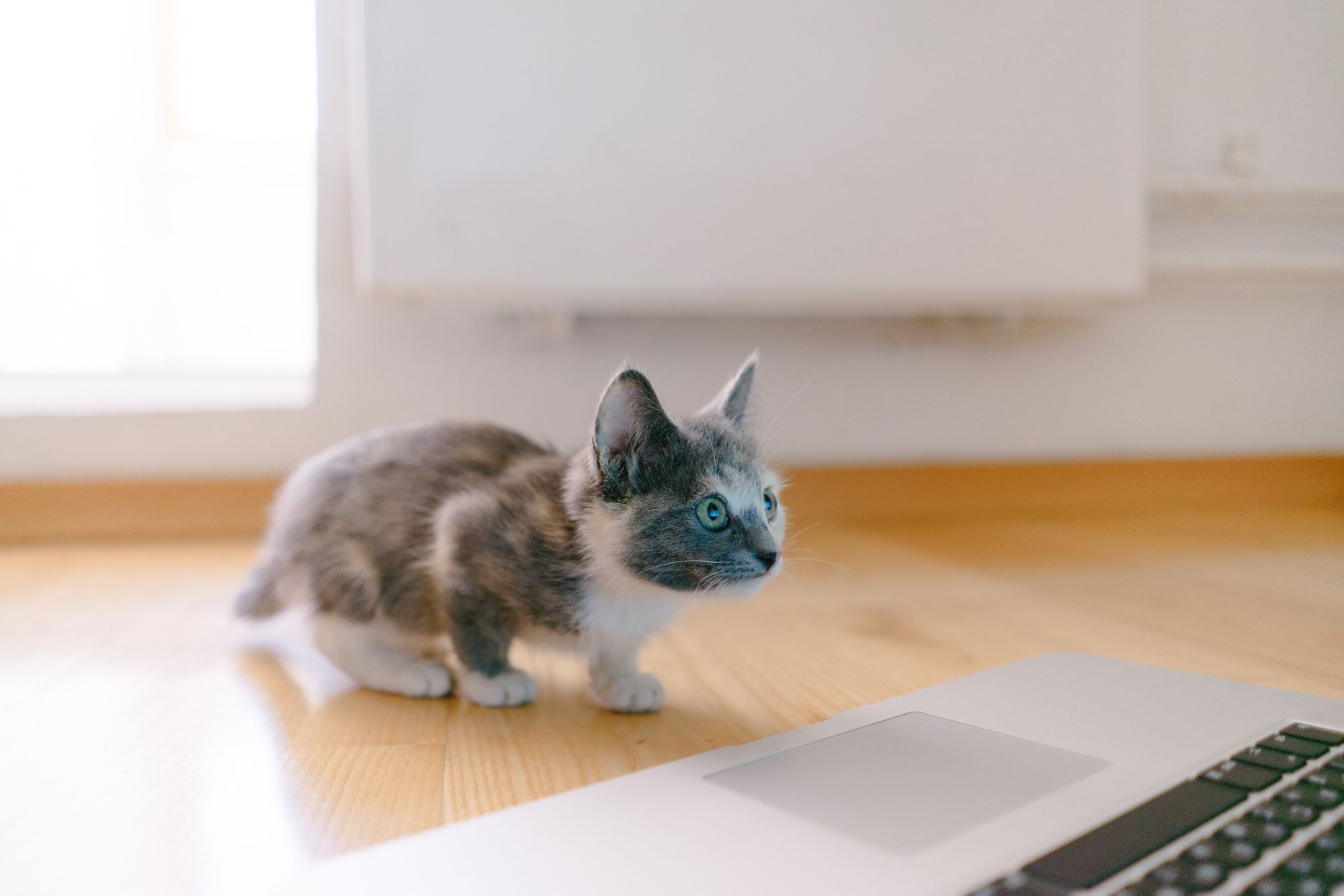With a visual field that is slightly greater than that of humans, a cat’s vision allows them to see both indoors and outdoors. It’s no wonder why our feline friends seem to have laser focus when they’re in the mood to play or when they’re in hunting mode. But what if your cat exhibits signs of an eye problem, such as a cloudy eye? How will this affect their vision and overall eye health?
A cloudy cat eye could be a symptom of several diseases that may affect a cat’s eye health. If left untreated, these diseases can impair your cat’s vision, and in severe cases, they may lead to blindness. Needless to say, early detection, diagnosis, and treatment are ideal for a better prognosis.
Not to mention the importance of looking out for signs of eye issues and ensuring that your cat is updated with their regular checkups. But first, what are the causes of cloudy eyes in cats?
Content:
- Causes of Cloudy Eyes in Cats
- Treatment of Cloudy Eyes in Cats
- How Can the Emergency Fund Help with Treatment
- FAQ
- Conclusion
Causes of Cloudy Eyes in Cats
Cataracts
If your cat has a cloudy eye, it could be a cataract, as it is one of the main indicators of the disease. When it comes to cataracts, the lens of the affected eye progressively becomes cloudier, which may cause blurriness in vision and even blindness if no treatment is given. The cloudiness of the eye hinders light from reaching the eye’s retina, thus affecting vision.
More commonly, cats may develop cataracts due to eye trauma, inflammation, or systemic disease. It may occur regardless of age and breed, but exotic breeds such as Himalayans and British Shorthairs are more genetically predisposed.
Glaucoma
This irreversible condition occurs when the fluid in the eye isn’t able to drain properly, causing fluid buildup. This buildup places much pressure on the eye’s optic nerve, resulting in pain, eye bulging, and even blindness. Among the symptoms of glaucoma are red, painful, cloudy, and bulging eyes; tearing; and frequent blinking.
It is vital to treat glaucoma to manage chronic pain and slow the progression of the eye’s loss of vision.
Corneal Ulceration
Corneal ulceration may be caused by several factors, such as trauma, infection, and chemical exposure. The most common of these reasons is trauma. Corneal ulcers are formed when the thin layer of cells that provide protection, called epithelial stem cells, is eroded.
This may cause a cloudy eye in your cat as inflammatory cells penetrate the stroma of the eye. In severe cases, it may lead to eye inflammation, rupture, vision loss, and blindness.
Having a pet camera helps you monitor your pet and detect when something’s wrong, especially in cases where injuries entail immediate veterinary care. The Petcube Camera is a good choice, with its innovative features that enable you to detect anything that’s out of the ordinary and interact with your pet if you wish.
It also gives you access to an online vet service that allows you to consult with certified vets anytime and anywhere.
Keratitis
Keratitis can be distinguished by swelling and an inflamed cornea. It may be associated with secondary causes such as an injury or an infection. According to NCBI study, more often, it may be due to the feline herpes virus.
Uveitis
This condition causes inflammation in the uvea, which results in less production of fluid and lower pressures inside the eye. It can either be acute or chronic and may affect cats regardless of age, breed, or sex.
Stop Googling - Ask a Real Vet
Among the symptoms of uveitis are repeated squinting and blinking, an increase in discharge, and a cloudy eye in a cat. There are several positive causes of the condition, including infectious diseases, chronic cataracts, trauma, immune-related diseases, cancers, and high-fat diets.
Treatment of Cloudy Eyes in Cats
Treating cloudy eyes in cats would depend on the cause as well as how severe it is. Either way, it is best to work alongside your veterinarian throughout the treatment process.
While cataracts cannot be reversed, management includes treating the underlying cause, such as diabetes or high blood pressure. Surgery, which involves removing the cataract and implanting a synthetic lens, is often successful.
Glaucoma, on the other hand, has no cure. Because of this, the only treatment option is palliative care to slow the progression of the disease. To lessen the pressure and inflammation in your cat’s eye(s), eye drops and steroids may be prescribed by your vet.
When it comes to corneal ulcerations and keratitis, treatment usually involves ointments and eye drops to relieve pain and/or an antibiotic. Meanwhile, if the keratitis is due to the feline herpes virus, more intensive treatment may be needed.
How Can the Emergency Fund Help with Treatment

Having a pet emergency fund is important since we never know when a pet emergency may take place. While we sincerely hope that no such emergency takes place, we have to be prepared if it does.
Petcube’s Pet Emergency Fund prepares you for pet emergencies by giving you the peace of mind that you need during this vulnerable period. If, for example, your cat gets involved in an accident that results in eye trauma or injury that would need emergency veterinary care, Pet Emergency Fund assures you that the vet bills will be paid at the time that you need them.
That way, you get to focus on providing the best treatment for your cat. The Pet Emergency Fund welcomes any pet, with no restrictions as to their age, breed, or medical history. You also get access to an online vet service where you can consult with certified veterinarians 24/7.
FAQ
If my kitten has a cloudy eye, should I be worried?
While there are several possible reasons why cloudy eyes in kittens (especially newborns) may be due to an infection. Other possible symptoms of an eye infection in kittens apart from a cloudy eye are yellow or green discharge, red and irritated eyes, upper and lower eyelids sticking together, and swelling of the eye(s).
If your kitten’s eye or eyes are cloudy, it’s best to bring them to the vet immediately to be checked. If diagnosed early, there is a good prognosis for healing, but it also depends on the severity of the condition.
Is a cloudy cat eye permanent?
Depending on what is causing your cat’s eyes to be cloudy, it can either be temporary or permanent (ex. glaucoma). If you notice a cloudy cat eye, it’s best to bring them to the vet as soon as possible for a proper diagnosis.
If my cat has a cloudy eye, is it an emergency?
It depends on the case, but if you notice your cat feeling discomfort or pain in the eye(s), it’s important to bring them to the vet at once.
Conclusion
Like humans, cats may also be susceptible to eye damage or vision loss. With eye problems, as with any other health problem in our feline companions, the earlier the condition is diagnosed, the better the prognosis upon treatment.
While some eye diseases may be temporary and can be resolved with treatment, other cases are permanent and may even lead to blindness. To prevent eye damage and vision loss in our cats, it’s best to look out for our feline friends and make sure that they’re up-to-date with their veterinary checkups.
Was this article helpful?
Help us make our articles even better









